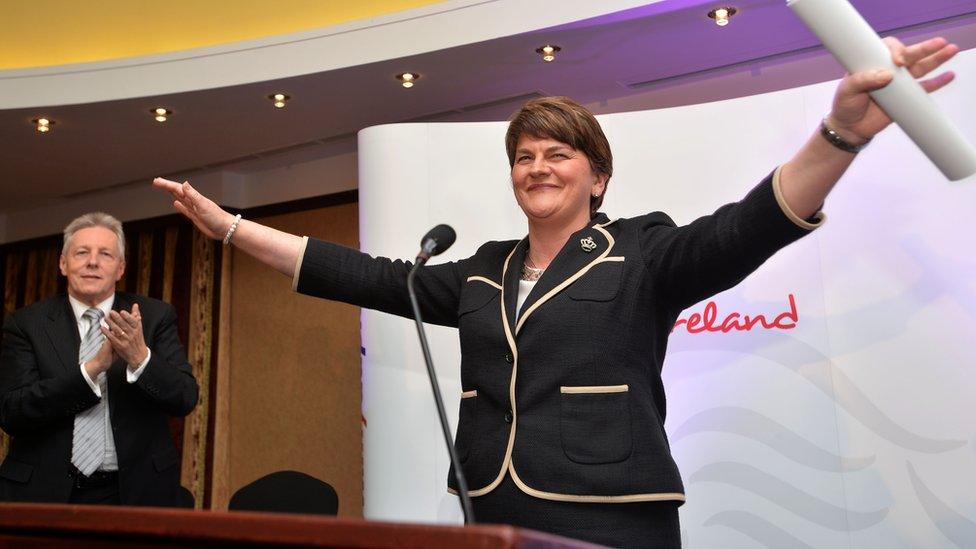Arlene Foster calls for 'sensible Brexit'
- Published
- comments
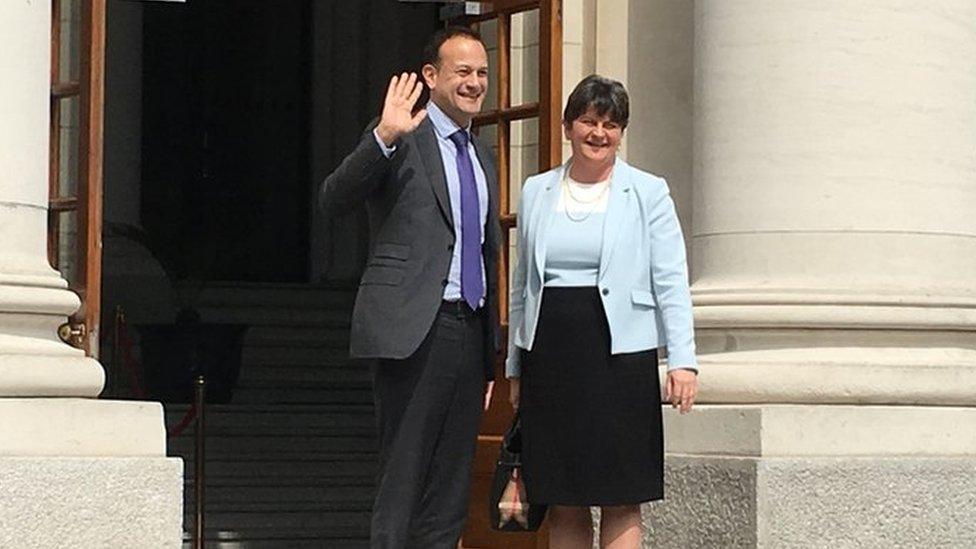
Leo Varadkar and Arlene Foster are holding talks in Dublin
Democratic Unionist Party (DUP) leader Arlene Foster has said there can be a "sensible Brexit" that works for Northern Ireland and the Republic.
Her comments came after talks with new Taoiseach (Irish prime minister) Leo Varadkar, who is also holding separate talks with Sinn Féin in Dublin later.
Mrs Foster was asked if she expected a deal with the Tories within a week and to be NI first minister in a fortnight.
She replied: "It takes two to tango and we're ready to dance."
She described her meeting with Mr Varadkar as "very useful and pleasant".
"We want to see a Brexit that works for everybody, not just in Northern Ireland from my perspective but in the Republic of Ireland as well, so it is about a sensible Brexit," she said.
"I know people want to talk about soft Brexit, hard Brexit, all of these things but what we want to see is a sensible Brexit and one that works for everybody."
It was thought they also discussed attempts to restore power-sharing at Stormont.
Sinn Féin also met with the taoiseach on Friday afternoon.
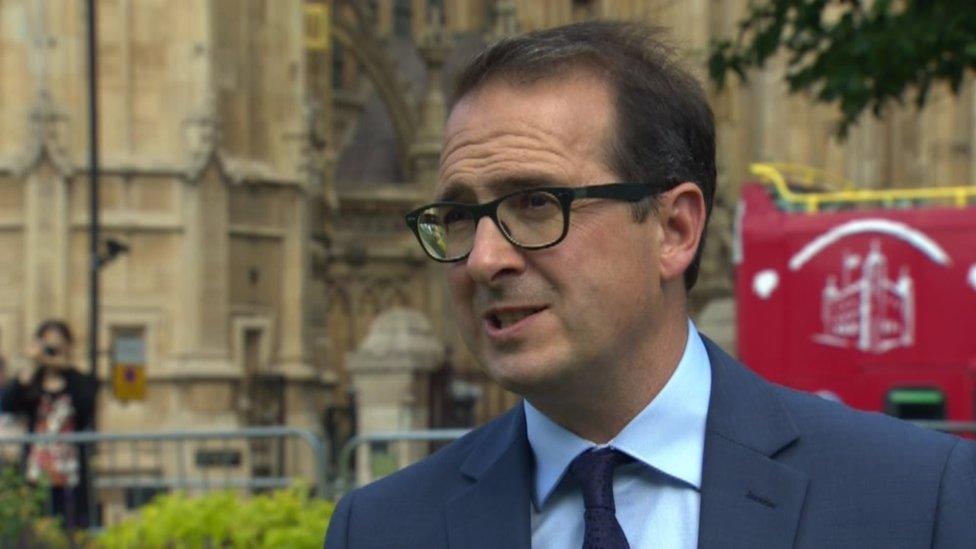
Owen Smith said the NI parties want their institutions restored
'Two good meetings'
The party's northern leader, Michelle O'Neill, said Sinn Féin remained "committed to making the institutions work".
"We also respect the other parties' mandates, we want to get back to an executive that has all the parties around the table to collectively take decisions," she said.
Leo Varadkar said he had "two very good meetings with the main parties in Northern Ireland".
"I am encouraged and a little more confident it is going to the possible to re-establish the Northern Ireland Executive before the deadline of 29 June," he added.
Meanwhile, shadow secretary of state Owen Smith has said he believes a deal to restore power-sharing at Stormont can be reached.
Speaking on The View programme on Thursday night, Mr Smith said he sensed a "willingness" among the parties to come to an agreement before the deadline on 29 June.
"The circumstances have changed dramatically with the election," he said. "Theresa May needs to cut a deal and the parties in Northern Ireland, I think, want to see their institutions restored."
"Those two things coming together hopefully mean there is a real confluence and perhaps that means we'll have the impetus we need to bring back power-sharing."
'Don't need formal deal'
Also on the programme, a leading member of the Commons Select Committee on Northern Ireland said he he did not necessarily believe there would be any concessions to the DUP to encourage them to support the government.
Conservative MP Bob Stewart said it was unlikely the party would oppose the Conservatives at Westminster anyway.
"It's not in their interest if this Conservative government goes down and, actually, I agree, they may well not have a formal deal, it doesn't necessarily need it," he said.
"What we need is good government of the country and also we want to get Northern Ireland sorted out as well."
On Thursday, DUP deputy leader Nigel Dodds said there was no deadline for a deal between the Democratic Unionist Party (DUP) and the Conservative Party, despite a date being set for the Queen's Speech.

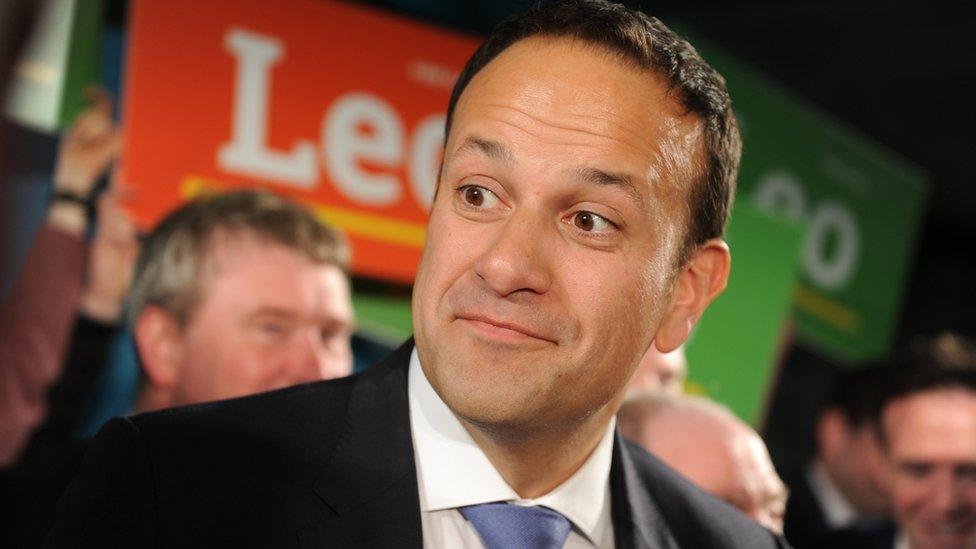
Leo Varadkar said he had "two very good meetings with the main parties in Northern Ireland"
Who is Leo Varadkar?
The former GP is the son of an Irish nurse and a doctor from India.
He was first elected as a councillor at the age of 24 and took a seat in the Dáil in 2007.
Shortly before the 2015 same-sex marriage referendum in Ireland he came out as gay during an interview with RTÉ.
His views are regarded as a centre-right politically due to his approach to socio-economic issues.
In 2011, Fine Gael appointed Mr Varadkar as the minister for transport, tourism and sport - and then health minister.
More recently he has overseen Ireland's welfare system.

The government confirmed the speech setting out its priorities would take place next Wednesday.
Mr Dodds said that the speech was "not relevant" to their negotiations.
His comments came after Northern Ireland's main parties held talks with Prime Minister Theresa May in Downing Street.
It is not yet clear whether EU withdrawal talks, which had been due to start on Monday, will also now go ahead on Wednesday, although Brexit Secretary David Davis has said they will start "next week".
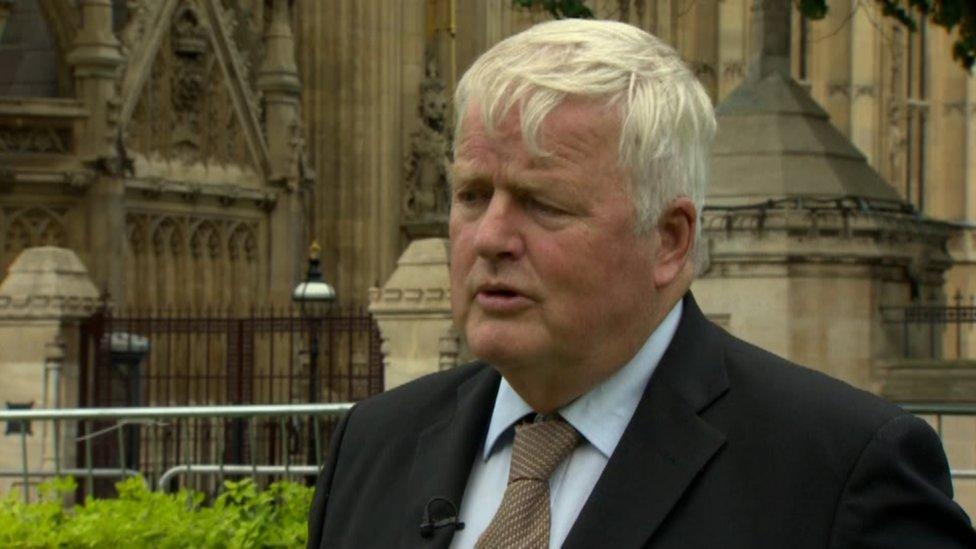
Bob Stewart said it would not be in the DUP's interests to see the Conservative government fall
Labour leader Jeremy Corbyn is planning to set out his party's own programme for government in a substantial amendment to the Queen's Speech, and will urge all other parties to back it in an attempt to topple Mrs May and form a minority Labour administration.
But the Conservatives are confident they can agree a deal with the Democratic Unionists, who have 10 MPs, that will allow them to get their programme through.
Talks are continuing between the DUP and Conservatives on the details of a deal, which could see the Northern Irish party supporting the Tories on the Queen's Speech and the Budget, but deciding on other issues on a vote-by-vote basis.
But critics argue such a deal could undermine the peace process.
The 1998 Good Friday Agreement commits the UK and Irish governments to demonstrate "rigorous impartiality" in their dealings with the different political traditions in Northern Ireland.
Northern Ireland Secretary James Brokenshire insisted the government would honour its commitments in the Good Friday Agreement and warned that time was running out if power sharing was to be restored and a return to direct rule from Westminster avoided.
"An agreement to restore devolved power-sharing government in Stormont must be reached by the 29 June deadline," he said.
- Published15 June 2017
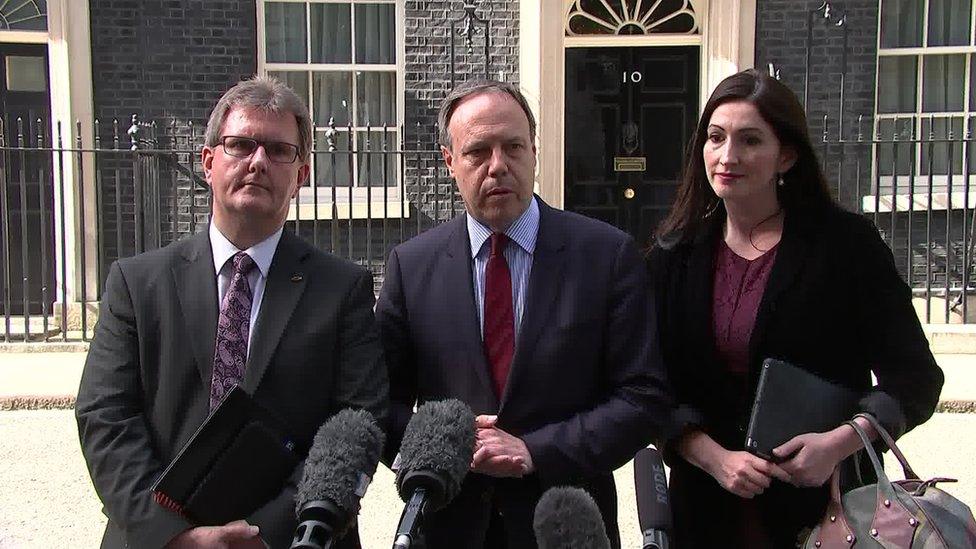
- Published14 June 2017
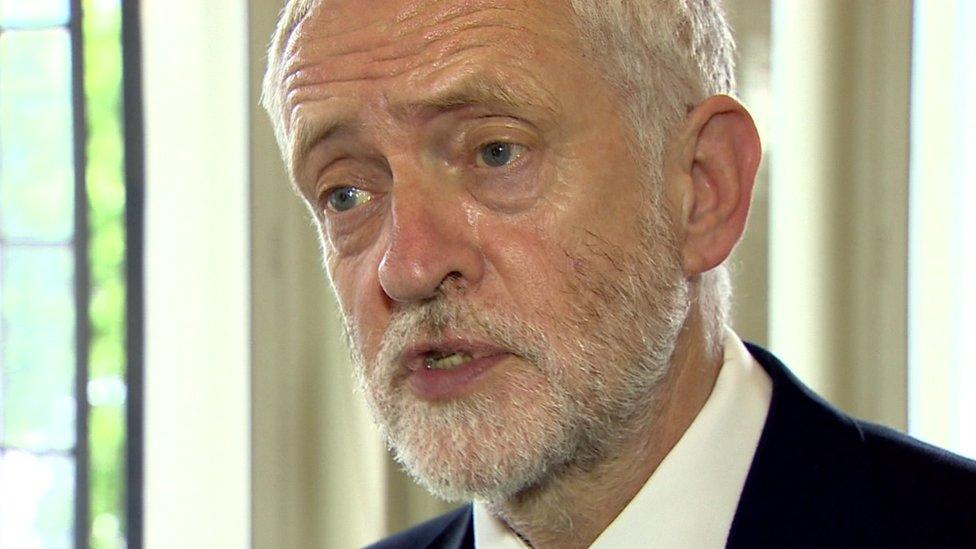
- Published10 June 2017
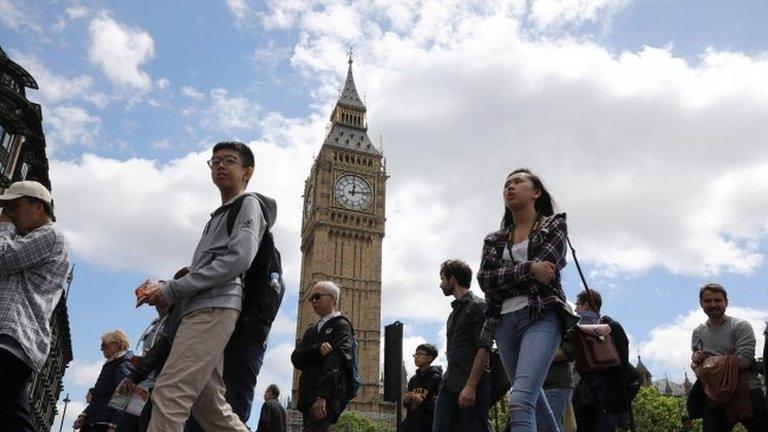
- Published13 June 2017
